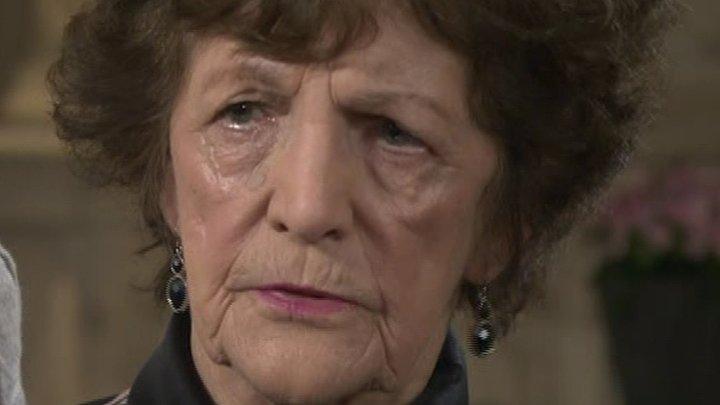Irish adoption: Draft Information and Tracing Bill to be published 'shortly'
- Published
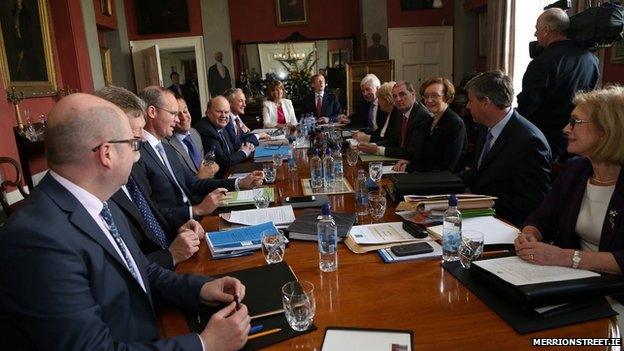
Members of the Irish cabinet discussed the proposed Adoption (Information and Tracing) Bill during a meeting in Lissadell House on Wednesday
New Irish legislation that could give adopted people greater rights to access information about their birth parents is due to be published shortly.
At present, people who were adopted in the Republic of Ireland do not have an automatic right to access details about their original identity.
The cabinet discussed a draft outline of the new legislation on Wednesday.
But campaigners fear it will not go far enough as birth parents may still be able to prevent access to information.
'Balancing of rights'
The Minister for Children, Dr James Reilly, has been working on the Adoption (Information and Tracing) Bill for some time.
His department has previously said he wants to provide greater access to birth records "in so far as is possible, in line with legal advice in relation the balancing of rights of those involved".
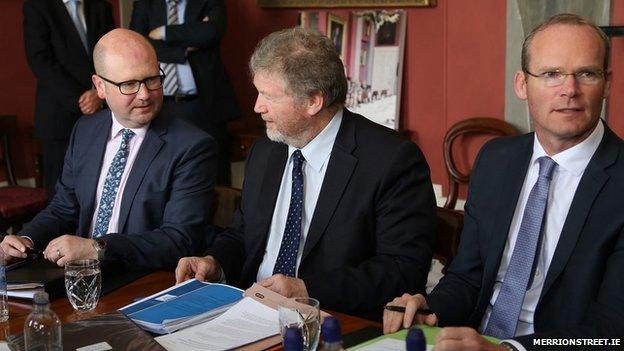
Minister for Children Dr James Reilly (middle) presented draft heads of the legislation to his cabinet colleagues but would not make a public comment on the planned measures
The state is legally required to register the birth of every child born in the Republic of Ireland, and copies of all short-from birth certificates can be accessed for a fee.
However, because many adopted people do not even know the name they were given at birth, often they cannot supply the information needed to apply for their birth certificate in the usual way.
For most of the 20th Century, having a baby outside marriage in an Ireland heavily influenced by the Catholic Church was regarded as scandalous and led to many children being given up for adoption.
The adoption process, which often involved unmarried mothers being put under pressure from the church, was shrouded in a secrecy that continues to this day.
Parental veto
Adopted people have to apply to the agency that dealt with their adoption and/or the Adoption Authority of Ireland to request information about their biological family and the circumstances of their birth.
Currently, the Adoption Authority takes into account the wishes of the birth mother before it releases information to adoptees.
If the mother objects to her details being handed over to the person she gave birth to, the Adoption Authority can then also refuse the adoptee's request, but such objections are considered on a case-by-case basis.
However, campaigners have argued that all citizens should have an equal right to know their family of origin and have called for an end to the parental veto over birth documents.
Susan Lovan, from Adoption Rights Alliance, said her organisation was concerned after a report, published in the Irish Times, external this week, suggested the veto could remain in place.
"The statutory declaration that adoptees will be obliged to sign, promising not to contact their natural parents, is also very worrying and smacks of suggesting that adopted people are to be feared," she told the BBC.
'Confidential'
The Department of Children and Youth Affairs would not confirm the contents of the draft legislation.
"The Heads of Bill are confidential until approved by government. In this context it would not be appropriate to comment on details until that time. The minister has confirmed it will be published shortly," Dr O'Reilly's spokeswoman said.
However, Deputy Prime Minister (Tánaiste) Joan Burton, who was adopted from a mother and baby home in the 1950s, has welcomed the planned legal changes.
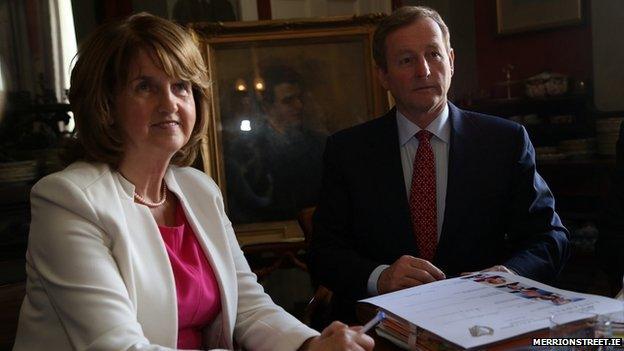
Deputy Prime Minister Joan Burton, who was adopted in the 1950s, said it was "very good that adopted people now will be able to actually access their birth certificate"
Ms Burton, who spent years trying to track down her biological parents, has campaigned for greater access to birth records.
'Pretty bleak'
Speaking ahead of Wednesday's cabinet meeting, she told Newstalk's Pat Kenny Show, external that it was "very good that adopted people now will be able to actually access their birth certificate".
"Not everybody wants to contact their birth family but a lot of people do and it's a right they should have," she said.
"So I must say personally I'm very pleased, very satisfied, because when people like me were going searching, say 20, 30, 40 years ago, it was pretty bleak."
Ms Burton started searching for her birth parents in her 20s and recalled the reluctance of the Catholic Church to release information to her.
"They nun would come in and eventually say 'And why do you want to know that? Sure, aren't you grand as you are and you're getting on well with life, what do you want to know?'
"And then they would normally always thrown in 'I promised your mother that on this side to grave nobody would ever make contact'.
Too late
By the time she eventually found out who her birth parents were, they had both died.
She is not the only person for whom greater access to adoption records has come too late.
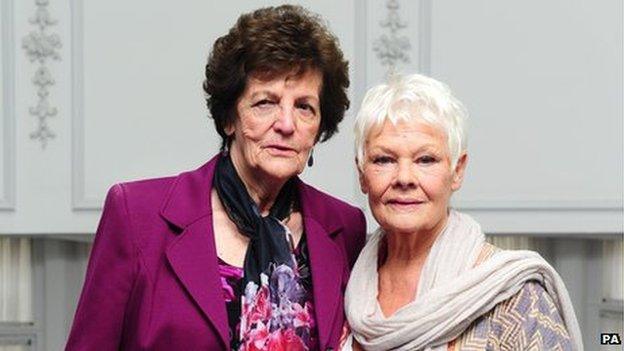
The campaign for access to adoption records was highlighted by Philomena Lee, who was played by Dame Judi Dench in an Oscar-nominated film based on her life
The issue was also recently highlighted in the Oscar-nominated film, Philomena, which was based on the real-life story of Irishwoman Philomena Lee, who spent 50 years searching for her adopted son.
The boy was among an estimated 2,000 Irish children who were adopted by Irish Americans.
Mrs Lee's son, who ended up working in the White House, had also searched for his mother, but he died without ever meeting her due to the reluctance of the Catholic Church to release information.
Mrs Lee has since launched a personal campaign with the support of the Adoption Rights Alliance.
- Published17 February 2014
- Published21 July 2014
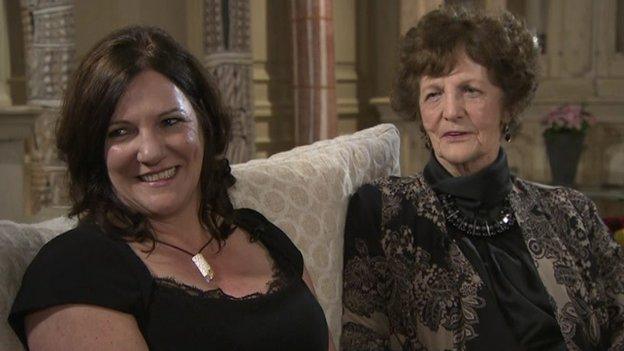
- Published25 January 2014
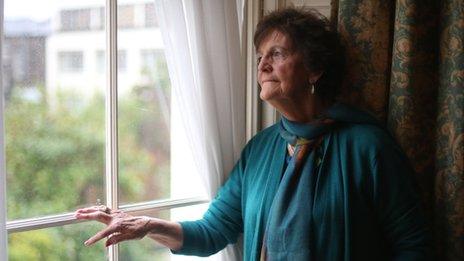
- Published18 February 2014
